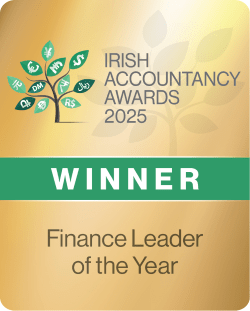
The World Bank has predicted that some European counties will not be able to avoid an economic recession next year. Here in Ireland we are facing rising interest rates, a cost of living crisis, an economic recession in the UK and the impact of a prolonged war in the Ukraine. Despite these headwinds Ireland is predicted to continue economic growth next year according to a forecast supported by the latest exchequer returns.
Here at Around Finance we thought it might be a good idea to turn our attention towards how the small business owner might hope for the best but prepare for the worst. Read on to hear more about recession-proofing your business.
Recession-Proof Business Ideas
When times are good, many businesses don’t keep as close of an eye on their books as they should. However, to become recession-resistant, it’s important to take charge of your finances and exercise responsible control over your billing.
Scenario Test Your Forecast
During times of future uncertainty it’s prudent to test our underlying assumptions and expectations.
The most common approach from a financial perspective is to create three scenarios for the next 12-36 months e.g. Expected, Best Case, Worst Case.
- Expected – manage the business on this basis in terms of goal-setting, recruitment etc
- Best Case – stretch goals communicated to those working in sales and marketing
- Worst Case – what strategic decisions can we make now to manage the business in a worst case scenario? What plans can we make now which we can quickly implement if things don’t work out e.g. cost-cutting plans. What sources of finance can we access in a Worst Case Scenario. This might include approaching the bank for access to finance even if you don’t need it based on the current “expected” scenario.
Focus On Accounts Receivable
During the good times it is possible that you have allowed a little more leeway with regard to payment terms. It is now time to begin enforcing your payment terms. Make sure that you follow up on bills that are past due, and add late payment fees that encourage your clients to settle their bills promptly. Consider sending a monthly statement with a phone call to attain a payment date from customers.
Take Control of Your Cash
According to research, half of all small businesses hold a cash buffer of less than one month, while more than a quarter hold less than 13 days’ cash buffer in reserve, which enables them to meet all of their cash outflows (rent, labour, etc.) without earning an income for 13 days. Take some time to understand your cash situation: how much you have in the bank, how much you need to keep afloat, how much business you need to bring in, and what’s owing to you.
Manage Your Payables
There’s no time like the present to take control of your payables and expenses. Evaluate where you are spending money unnecessarily and cut luxuries down as much as possible. If possible, see if you can reduce any non-negotiables, e.g. switching to a different Internet provider, downgrading software packages, cancelling cleaning services, or negotiating rent with your landlord. You can also try stretching payments to their due dates if you are strapped for cash.
Build Multiple Revenue Streams
If you really want to recession-proof your business, add another revenue stream at various price points. You can add consulting to your suite of services during the crisis period, incorporate affiliate marketing on your ecommerce site, or even rent unused storage and office space to suppliers. This could help fill financial gaps when your primary business falters.
Get in Touch with Lenders
If you anticipate issues with meeting your obligations to debtors, get in touch sooner rather than later. See if they are willing to offer extended or reduced terms and whether they can offer any flexibility in terms of repayment. It’s also a good idea to sit down with your bank manager for advice on how you can save money during the economic recession.
Change Your Business Model
During the pandemic, several businesses that couldn’t operate came up with creative, virtual services to keep their doors open. If possible, start thinking of ways you can change the way you operate, for example:
- Instead of working from an office, offer virtual consultations from your own home. Personal trainers, for example, can offer home exercise sessions at a lower rate.
- Caterers facing even cancellations can deliver healthy sandwiches and smoothies to office buildings or rent out their equipment to culinary schools and home chefs.
- Adding gift cards, new packages, or special promotions can stimulate business. Everyone is looking for cheaper alternatives to existing services – consider how your business ideas can fill the gaps.
- Adding courier services to your fleet or sharing cleaning services with the business next door to split the cost.
- Offering administrative services to people in your shared office space or to suppliers.
Even small changes might have favourable results that can tie you over during times when cash flow is poor.
Ask for Referrals
Happy clients can be your best source of marketing and your greatest ambassadors. Let your best clients know that you are looking for additional business. If possible, add a referral incentive (e.g. discounts, vouchers) to clients who make referrals that end in lucrative deals. Even adding a note to your signature stating that you are open to a new business can generate a lead. Gathering referrals is much cheaper than formal marketing efforts, and new clients are far more likely to trust the word of a friend than a marketing campaign.
Secure Finance Sooner Rather Than Later
Starting a business doesn’t have to be off the table. If you anticipate needing credit and financing to grow or support your business, it’s best to find it sooner rather than later before banks start tightening lending standards. Lowest-cost financing may take time to secure. Gather your financial statements and tax returns, address any issues with your business or personal credit and start looking into options. Recession-proof businesses aren’t ones that shut down or stop growing altogether – you can still be ambitious and grow and turn your business idea into a reality.
According to some financial experts, small business owners in countries like the United States rely on banks for about 50% of their financing; in Ireland, that figure is as high as 90%. This over-reliance on banks can cost your business during an economic recession when banks become more risk-averse, and loans become harder to acquire. Fortunately, there are alternatives you can explore, including:
- Credit Review: Credit Review is an independent credit review and appeal process for Irish business owners that have been refused credit by banks. They will represent your small business and provide support when you need a loan.
- Microfinance Ireland (MFI): Microfinance Ireland is a not-for-profit lender that has been established to deliver the Microenterprise Fund and provide small loans to both start-ups and established small businesses.
- State agencies, including Local Enterprise Office, Enterprise Ireland, Udaras na Gaeltachta, Bord Iascaigh Mhara and InterTrade Ireland, all provide support for small businesses.
- The Employment and Investment Incentive Scheme (EIIS) can provide tax relief for your business, subject to qualification.
- Crowdfunding is another option. There are dozens of websites that will help promote your cause. If you own a beloved mom-and-pop shop, chances are your community will be willing to support you when you need a hand. You can promote your cause through social media campaigns or using your existing email database.
If you’ve been using personal credit for your business, switch to a business credit card to protect your personal credit. You may become more reliant on credit if business slows down, and it’s best to protect your own creditworthiness.
Explore Insurance and Disaster Relief
If you have insurance policies, now is a good time to speak to your broker to find out whether or not you are covered against business interruption and what that would entail. Business interruption is often included as an optional extra to standard business insurance package policies or even commercial property insurance. Most of these policies cater for physical damage to premises, but they are usually highly tailored and might cover a host of other issues. Many companies in the Irish market were able to successfully claim against these policies during the pandemic as the terms can be quite ambiguous. Get in touch with your broker to find out whether or not you would be covered during an economic recession.
Keep Communication Open and Face Your Fears Head-On
If your business is struggling during times of economic uncertainty, you may be tempted to stick your head in the sand and avoid facing reality, but that will do little to solve the issue. Instead, look at your books as soon as possible and gain a clear picture of your situation so that you can take corrective measures if required. Speak to your clients, your bank manager, and your employees about the situation (providing relevant context in each scenario). Your accountant should be your first port of call to identify areas where you can cut costs and where you should focus your attention. Your clients should be clear about the fact that you are there to support them, despite the challenges and given the opportunity to support you if they are able to.
Conclusion
The worst thing anyone can do in an economic recession is nothing. Taking the time to take stock of your business, your needs and your plans for the future will help you face the difficult times up ahead and emerge stronger on the other side. Around Finance is a leading online accounting firm in Ireland and can help you with good business advice no matter where you’re based in the country.











